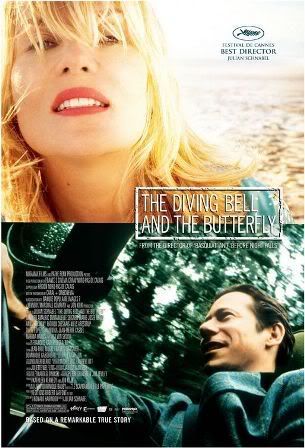my drive of hunting down the English subtitles with such determination. Finally, Terence shed me a light when I already left this thought behind. I can factor the determination into 3 simple reasons.
Strike #1 - The poster looks stunning. There's something about it that attracts me. Maybe the smile on Jean-Do's face or how the summer glare makes her gaze so dreamy that I wish I am at the beach. There's just something about it.
This looks simple but beautiful, no?
Strike #2 - It's a French movie, or I'll say it falls into my general category - anything European. I know I know. It's not a language to be fully comprehended by a Penang-born Chinese that assumed mastering English will make understanding French easy as well. But, there's just something appealing about the way European movies are being directed and filmed. Usually, the end result turned out to be a beautiful painting with great dialogues that I cannot understand. But, subtitles help to convey part of the context for most of the time. With that and my own added imagination, I often amplified all the punch lines the director intended.
Strike #3 - I'm a lazy student so I refer to film festivals as a guidebook to my film hunting journey. You should know that since I have mentioned how I found Dedication from Sundance festival. Well, since this film did great in Cannes, why not.
I do not know a thing about baseball. But three strikes are convincing enough for me to jump at this gem, which I do not regret spending 1:47 hour feeling my left eye has gone blind too.
The director insists on using the cinematography that allows audience to experience vision with only a left eye. So, more than half of the movie which involves Jean-Do's monologue, is presented in a close left-aligned angle as if we are seeing the world from his only vision left. At first, it was a bit disturbing but that makes us all agree as what makes the cinematography successful in influencing the cinema experience.
Before I write further, you should know that the plot is known by all, prior to watching the film. The editor of French Elle - Jean-Dominique Bauby a.k.a Jean-Do, had a stroke and went into vegetation state that left him only with his left eye. With that blinking motion, he dictated his memoir and died 10 days after its publication.
Of so many touching scenes accompanied by magnificent soundtrack, I like the scene where the doctor cruelly sutured up Jean-Do's paralyzed right eye. My instinct understands that the main objective consists largely of preventing the stationary eye ball from haunting all of them that have to stay around him. Maybe, it will also prevent infection to an eye without moisture from movement. Well, maybe.
Also, there's another beautiful scene where the wind by the beach gently blows his wife's dress and his vision pursues the waves of the dresses as it reveals the intimate flesh of his wife.
Nonetheless, there are heaps of humour projected by Jean-Do's monologue which got me laughing at times, and sarcasm that drove the bitterness in me to grow.
So, in all, at the end of the movie, I was deeply moved by his determination to write a memoir in such beautiful words and imagination, through such difficult process. Perhaps,it's no longer complicated when that's all you can do from then on.
Le Scaphandre et Le Papillon or The Diving Bell and The Butterfly is a thumbs-up recommendation to all sensitive souls. I'll definitely watch this again should it ever be screened locally.
P/S: The soundtrack is awesome. Read this line with American teenage footballer's accent. Charles Trénet's La Mer kept on playing in my mine. What a beautiful summer.

No comments:
Post a Comment